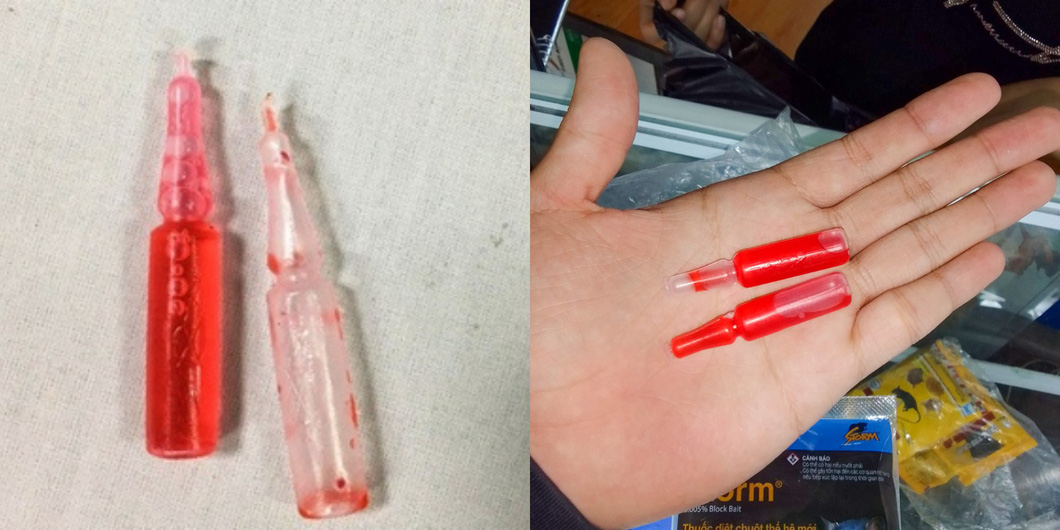Many hazardous types of rodenticides that were prohibited several years ago are now widely sold at pesticide shops, hawker stalls, and grocery stores, posing a threat to residents’ health and lives in Vietnam.
In Hanoi, several types of rat poison, without labels or clear origin, are sold everywhere, from hawker stalls to convenience stores.
At a grocer's at Thanh Cong B Wet Market, at least three types of rat poison are on sale at a price ranging from VND20,000 (US$0.85) to VND300,000 ($1.27).
“Rodenticides mixed with unhusked rice were less effective to kill rats, while rats die immediately eating the poison with red liquid inside,” said the owner of the grocer's.
The poisonous drug originates in China, said the owner.
“I do not know the ingredients of this type, but the rat poison works well. Rats die right after eating a piece of cake and food mixed with a few droplets of the liquid drug,” stressed the owner.
A search for rodenticides with keywords 'Rat poison' on e-commerce platforms quickly returned a series of rat poison results.
A shop is selling a type of rat poison priced at a mere VND8,000 ($0.33). This type looks like red syrup with no label.
The store’s advertisement reads, “Common types of rat poison with a low dose cannot kill rats, so this strong poison is recommended. After ingesting this drug, rats will suffer internal bleeding and die at once.”
This toxin has no label or black box warnings. Meanwhile, as per the Agriculture and Rural Development Ministry’s regulations on plant protection products, including rat poison, these products must bear labels including names, ingredients, substances, doses, serial numbers, manufacturing date, expiration date, origin, usage and storage instructions, and unexpected reactions.
Some rat poisoning cases in people have been reported in Vietnam
In February 2023, the Anti-Poison Center at Hanoi-based Bach Mai Hospital admitted a female patient, a 21-year-old native of Ha Nam Province, who experienced nausea and went into a coma and convulsions.
After a medical examination, the patient was diagnosed with fluoroacetate poisoning. Fluoroacetate is used as a rodenticide.
“This rat poison was banned a decade ago,” said Dr. Nguyen Trung Nguyen, director of the center.
When ingesting fluoroacetate, patients will experience convulsions, coma, respiratory failure, arrhythmia, metabolic acidosis, and kidney failure, and die, according to Dr. Nguyen.
“Despite a ban on this rodenticide, residents can easily purchase it at pesticide shops, hawker stalls, pet shops, and grocers. The unsafe and rampant use of rat poison can result in poisoning,” said Dr. Nguyen.
Earlier on February 2, 2022, Nghi Loc District in the north-central province of Nghe An reported a death from rat poisoning. A little girl died after drinking rat poison.
Nghe An also reported another poisoning case, in which a 32-month-old girl drank rat poison as she thought it was a soft drink. She fell into a coma and was hospitalized in critical condition.
Dr. Nguyen advises residents to buy permitted rat poison with clear origin at certified pesticide shops.
“Residents should only use rodenticides in separate areas and those far from residential areas and water sources while keeping these hazardous products out of children’s hands," said Dr. Nguyen.
"They should not store rat poison at home.”
Like us on Facebook or follow us on Twitter to get the latest news about Vietnam!




















































